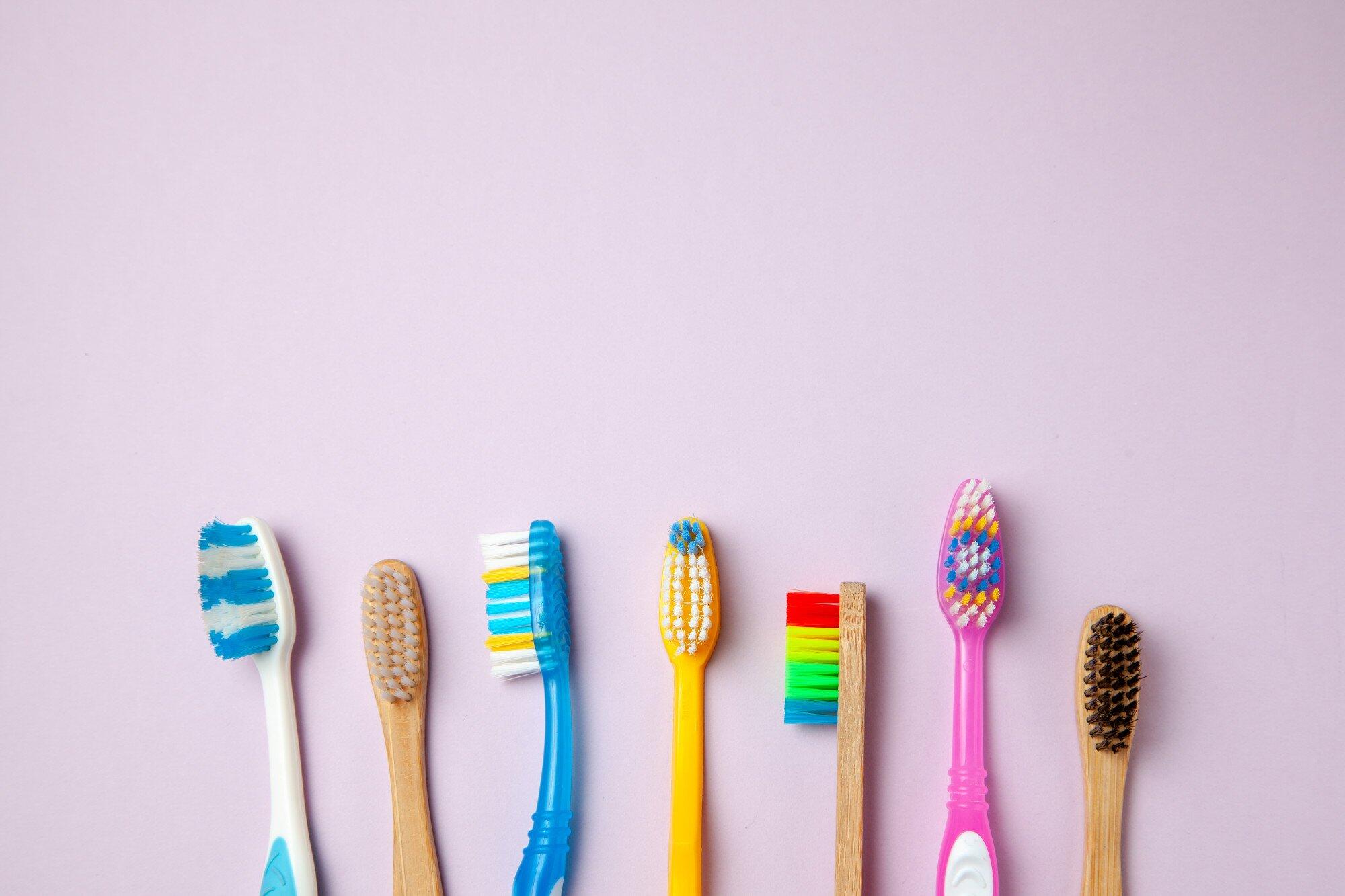
10 Apr What Brushing Too Hard Can Do to Your Teeth
Research shows that 90% of adults have had tooth decay at some point in their lives. We tend to associate cavities and decay with poor dental hygiene. Does that mean that the vast majority of American adults aren’t brushing twice a day?
We know that far more than 10% of adults brush twice a day. However, many adults are actually brushing too hard.
That’s right, you can over-brush (some may call it aggressive brushing), and this can cause its own problems.
What issues arise when you brush too hard? What’s the right way to brush your teeth? Read on to learn.
Why Brushing Too Hard Matters
Brushing is an important part of removing plaque from the teeth. Brushing with a lot of pressure may seem like a more effective way to scrub away the plaque, but it does have long-term repercussions. Let’s take a look at what those repercussions are.
Enamel Wear and Tear
Did you know that enamel is the hardest substance in your body? Enamel protects the crown of your tooth from cavities and makes your teeth strong enough to chew all kinds of foods.
Though tooth enamel is strong, it does wear down over time. Acid is one of the biggest causes of tooth enamel erosion, but aggressive brushing is a close second. As tooth enamel erodes, teeth can weaken, yellow, and decay.
Gum Recession
Gums, on the other hand, are a soft tissue. If over-brushing can wear away enamel, you can imagine how much damage it can do to your gums.
All that extra pressure can cause gums to shrink, exposing more of the tooth. This does more than alter the appearance of your smile. The closer the roots of your teeth are to the surface, the higher your risk is for things like temperature sensitivity and tooth loss.
Signs You May Be Over-Brushing Your Teeth
Many people don’t realize they’re using excess pressure while brushing their teeth. By adulthood, brushing is second nature, and it’s hard to notice and change old habits. Here are some of the more obvious signs that it’s time to ease up with the toothbrush.
Gum Bleeding and Other Issues
If brushing too hard is new for you, you may notice that dreaded pink in the sink after brushing. If you’ve been an aggressive brusher for a long time, you may start to notice your gums receding. Advanced gum damage can open the door to gum disease or the need for gum surgery.
Dull or Yellow Teeth
Below your tooth’s natural enamel is a layer of dentin, which is darker than enamel. As your enamel wears down and reveals that dentin below, your teeth may start to look yellow or dull. While it is possible to whiten the dentin, you’ll find that at-home options like whitening toothpaste or whitening strips don’t make much of a difference.
Tooth Sensitivity
Healthy enamel and healthy gums both serve important roles in protecting the roots of your teeth, which have many nerves. When over-brushing compromises one or both, the root becomes more exposed, which can cause pain and sensitivity when eating hot or cold foods. Dentin also has nerves, and exposed dentin can cause similar sensitivity issues.
Cavities Despite Regular Oral Hygiene
We learn from a young age that good oral hygiene (brushing, flossing, and dental cleanings) is key in preventing cavities. If you’re still noticing signs of cavities despite a regular brushing routine, it’s possible that you’re over-brushing. People who over-brush often develop cavities along the gum line or on the surface of the tooth, where enamel is missing.
Rapid Toothbrush Wear
There’s one sign that doesn’t require any real knowledge of dental health. Instead, all you need to do is look at your toothbrush in the first few days and weeks of using it. If the bristles flatten or splay long before the three-month mark, you’re using more force than you need to while brushing.
How to Brush the Right Way
There are several conscious changes you can make to your brushing habits and methods you can teach your kids from a young age. Let’s take a look at how to brush the right way.
Get the Angle and Technique Down
To protect your gums, brush at a 45-degree angle, pointing the bristles away from the gumline. While you want to scrub away the plaque that develops near the gums, you don’t want to brush the gums themselves. Move the toothbrush in small circles and aim to slow down and brush for a total of two minutes.
Switch Up Your Toothbrush
Because these habits are hard to break, we recommend switching to a soft-bristled electric toothbrush. Try to select a model that will alert you with a small beep or vibration when you brush too hard. Replace your toothbrush (or the toothbrush head, if you go electric) every two to three months to ensure that the bristles are getting the job done without extra pressure.
Ditch the Abrasive Toothpaste
Many people opt for toothpaste brand that contain abrasive ingredients like charcoal, chalk, or baking soda because of their whitening potential. While there are some good uses of abrasive toothpaste, they tend to cause more harm than good. Limit your use of abrasive toothpaste to protect your enamel.
Get Dental Cleanings
There’s no need to brush hard if you get your dental cleanings twice a year. Dental cleanings are like a reset for oral health, eliminating any plaque buildup that at-home brushing and flossing leaves behind. Even if you’ve missed these appointments in the past, our dentist will always be happy to see you!
Need Dental Care for the Whole Family? Visit McIlwain Dental Specialists
Applying pressure while brushing may seem like the best way to remove plaque, but as you can see, there are many consequences of brushing too hard. Change up your oral hygiene habits to protect your gums and enamel today.
McIlwain Dental Specialists are proud to provide dental care for all ages in the Tampa Bay and Wesley Chapel areas. We offer more services under one roof than your average dental office, including orthodontic care and dental anxiety support. Contact us today to schedule your next appointment.


